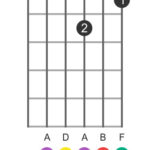For decades, the whereabouts of Paul McCartney’s first bass guitar, a 1961 Höfner, remained a mystery. This wasn’t just any instrument; it was the bass that laid down the foundation for Beatlemania, the distinctive violin-shaped sound heard on early Beatles classics like “Love Me Do” and “She Loves You.” Now, after a painstaking five-year search, spearheaded by Höfner and aided by investigative journalists, this legendary instrument has been returned to its rightful owner, Sir Paul McCartney. The estimated value? A staggering £10 million ($12.6 million), but its historical significance is truly priceless.
The quest to recover the “lost bass” began at McCartney’s own request. As Nick Wass, Höfner’s marketing manager, recounted, “Paul said to me, ‘Hey, because you’re from Höfner, couldn’t you help find my bass?'” This simple query ignited a determined hunt. For McCartney, this wasn’t just about reclaiming an old instrument; it was about recovering a crucial piece of his musical history and the history of rock and roll itself.
This particular Höfner 500/1 bass guitar was purchased by the then-struggling young musician in Hamburg, Germany, in 1961 for a mere £30 (approximately $37 at the time). Its symmetrical shape was a key factor in McCartney’s choice, as he noted, “Because I was left-handed, it looked less daft because it was symmetrical.” Beyond its aesthetic appeal, the bass quickly became integral to the burgeoning Beatles sound. It was the bass heard on their first two albums and numerous chart-topping singles, its distinctive tone shaping the early sound of the world’s most influential band. Its disappearance sometime around 1969, during the chaotic period of the Let It Be sessions, remained an unresolved chapter in Beatles lore.
The search gained significant momentum when journalist Scott Jones, intrigued by the sunburst finish on McCartney’s bass during a 2022 Glastonbury performance, delved into the instrument’s history. Discovering the original bass was missing and subject to an ongoing search, Jones and his wife Naomi, also a journalist, joined forces with Wass and Höfner to amplify the search efforts. Dubbed “The Lost Bass Project,” their initiative relaunched in September, leading to a flood of information.
An early breakthrough came from Ian Horne, a sound engineer who had worked with McCartney’s band Wings. Horne revealed the bass was stolen from the back of his van in London’s Notting Hill area in 1972. This crucial detail narrowed the timeframe and location of the disappearance, providing a tangible lead. Despite the theft, Horne recounted McCartney’s understanding reaction, allowing him to continue working for Wings for another six years, though Horne admitted to carrying “the guilt all my life.”
Further investigation and online appeals yielded an even more significant breakthrough. A contact emerged claiming their father had stolen the bass, not realizing its significance at the time. Panicked by his actions, the thief reportedly sold the instrument to Ron Guest, a pub landlord, for a pittance – a few pounds and some beers. The trail led to Guest’s family, and eventually, contact was made with Cathy Guest, Ron’s daughter-in-law.
Cathy Guest recognized the description of the lost bass matching an old instrument stored in her attic for years. The bass had passed through the family, from Ron Guest to his sons, eventually ending up with Cathy and her late husband Haydn. Unbeknownst to them, they were in possession of a piece of music history. The instrument was returned to McCartney in December, and after a thorough two-month authentication process, the news was confirmed: Paul McCartney’s original 1961 Höfner bass guitar was home.
 Close-up of Paul McCartney's iconic Höfner violin bass guitar
Close-up of Paul McCartney's iconic Höfner violin bass guitar
The estimated £10 million valuation, while substantial, underscores the instrument’s unique place in music history. While comparing it to the $6 million sale of Kurt Cobain’s MTV Unplugged guitar provides context, the true worth of McCartney’s Höfner lies in its contribution to the soundtrack of a generation. As Scott Jones noted, the thief likely couldn’t sell it due to its notoriety, and the Guest family never attempted to capitalize on it, unknowingly safeguarding a cultural artifact.
The return of his original Höfner bass is more than just the recovery of a valuable instrument for Paul McCartney. It represents the retrieval of a fundamental element of his musical identity and the early Beatles’ sound. For guitar players and music enthusiasts worldwide, this story is a testament to the enduring legacy of this iconic bass guitar and its profound impact on music history. McCartney’s official website acknowledged the return, expressing his immense gratitude to everyone involved in this remarkable five-year quest. The “long and winding road” to find the lost bass had finally reached its destination, bringing a celebrated chapter of music history full circle.

